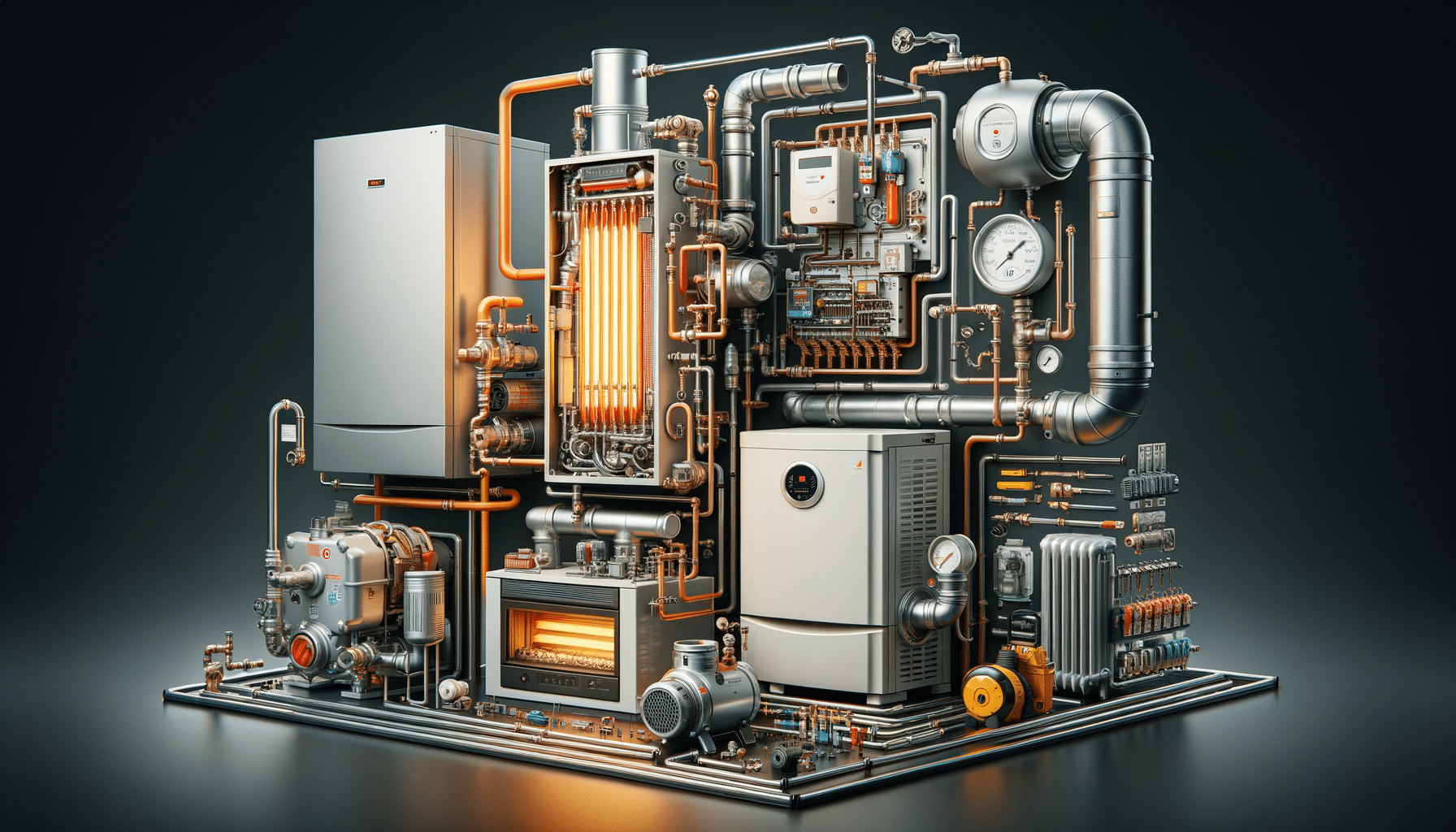Understanding Heating Systems: A Comprehensive Guide
Explore the intricacies of heating systems, their types, and their impact on comfort and efficiency.

The Role of Heating Systems in Modern Living
Heating systems are an integral part of modern living, providing comfort and warmth during cold seasons. As the demand for energy-efficient solutions grows, understanding the diverse types of heating systems becomes crucial. From traditional furnaces to innovative heat pumps, each system offers unique benefits and challenges. The choice of a heating system impacts not only the comfort of a home but also its energy consumption and environmental footprint.
In regions with harsh winters, heating systems are indispensable. They ensure that indoor environments remain livable and comfortable, regardless of outdoor temperatures. The significance of heating systems extends beyond mere comfort; they play a vital role in health and well-being by preventing issues such as hypothermia and frostbite.
Moreover, heating systems have evolved significantly over the years, incorporating advanced technologies to enhance efficiency and reduce carbon emissions. With climate change concerns on the rise, the selection of an appropriate heating system is more relevant than ever. Homeowners and businesses are increasingly considering systems that balance performance with sustainability, reflecting a growing awareness of environmental responsibilities.
Types of Heating Systems: An Overview
Heating systems come in various forms, each designed to meet specific needs and preferences. The most common types include:
- Furnaces: Often powered by natural gas, oil, or electricity, furnaces distribute heated air through ducts, providing warmth throughout a building.
- Boilers: These systems heat water to generate steam or hot water for heating, commonly used in radiators or underfloor heating systems.
- Heat Pumps: Utilizing electricity, heat pumps transfer heat from the outside air or ground into the home, offering an energy-efficient alternative to traditional systems.
- Radiant Heating: This system uses infrared radiation to heat surfaces directly, providing a comfortable and consistent warmth.
Each type of heating system has its advantages and limitations. For instance, furnaces are known for their rapid heating capabilities but may lead to uneven temperature distribution. In contrast, radiant heating offers consistent warmth but may require a higher initial investment.
Choosing the right heating system involves considering factors such as the size of the space, climate conditions, energy efficiency, and budget. With technological advancements, hybrid systems that combine different heating methods are also gaining popularity, offering flexibility and improved energy management.
Energy Efficiency in Heating Systems
Energy efficiency is a critical consideration when selecting a heating system. Efficient systems not only reduce energy consumption but also lower utility bills and minimize environmental impact. The efficiency of a heating system is often measured by its Annual Fuel Utilization Efficiency (AFUE) rating, which indicates how effectively a system converts energy into heat.
Modern heating systems are designed with energy efficiency in mind. For example, high-efficiency furnaces can achieve AFUE ratings of up to 98%, meaning only 2% of the energy is lost during the heating process. Similarly, heat pumps are renowned for their efficiency, as they transfer heat rather than generate it, using significantly less energy compared to traditional systems.
In addition to selecting an energy-efficient system, proper maintenance is essential to ensure optimal performance. Regular servicing, including cleaning filters and checking for leaks, can prevent energy loss and extend the lifespan of the system. Homeowners are also encouraged to consider programmable thermostats, which allow for precise temperature control and further energy savings.
Environmental Impact of Heating Systems
The environmental impact of heating systems is a growing concern, particularly in light of global climate change. Traditional heating systems, especially those reliant on fossil fuels, contribute significantly to carbon emissions. As a result, there is a shift towards more sustainable solutions that align with environmental goals.
Renewable energy sources, such as solar thermal systems, are gaining traction as eco-friendly alternatives. These systems harness solar energy to provide heating, reducing reliance on non-renewable resources. Additionally, advancements in technology have led to the development of geothermal heat pumps, which utilize the earth’s natural heat to warm buildings efficiently.
Governments and organizations worldwide are also implementing policies and incentives to encourage the adoption of environmentally friendly heating systems. These initiatives aim to reduce carbon footprints and promote sustainable practices in both residential and commercial settings.
Ultimately, the transition to sustainable heating systems is not only beneficial for the environment but also offers long-term economic advantages. By investing in green technology, individuals and businesses can contribute to a healthier planet while enjoying energy savings.
Choosing the Right Heating System for Your Home
Selecting the appropriate heating system for your home involves careful consideration of various factors. The decision should be guided by the specific needs of the household, budget constraints, and environmental considerations.
Firstly, assess the size and layout of your home. Larger homes may benefit from centralized systems like furnaces or boilers, while smaller spaces might find heat pumps or radiant heating more suitable. Climate conditions also play a crucial role; in milder climates, heat pumps may offer sufficient heating, whereas colder regions might require more robust systems.
Budget is another important factor. While high-efficiency systems may have a higher upfront cost, they often result in long-term savings through reduced energy bills. It’s essential to weigh the initial investment against potential savings to determine the most cost-effective option.
Environmental impact should not be overlooked. Opting for systems with lower carbon emissions or those that utilize renewable energy sources can contribute to sustainability efforts. Additionally, exploring available incentives and rebates for energy-efficient systems can help offset costs.
In conclusion, selecting the right heating system requires a holistic approach that considers performance, cost, and environmental impact. By making informed decisions, homeowners can ensure comfort, efficiency, and sustainability in their living spaces.